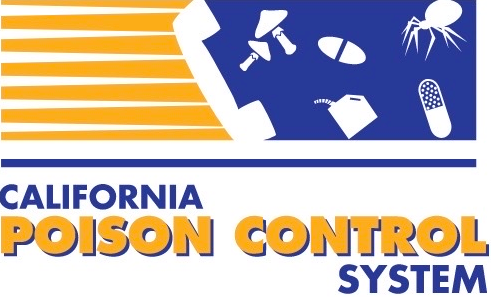At-risk individuals are people who are susceptible to not receiving or accessing the medical care they need because of a functional limitation. At-risk groups can include, but are not limited to, pregnant people, young children, older adults, and people with weakened immune systems. Poison exposures can be especially harmful for at-risk groups. Follow the prevention tips below to practice poison safety for at-risk groups.

Safety tips for at-risk groups
Carbon monoxide safety
Carbon monoxide is a colorless, odorless, and tasteless gas. While carbon monoxide poisoning is dangerous for anyone, it is especially dangerous for developing fetuses. When carbon monoxide enters the bloodstream, it deprives every organ of oxygen. For developing fetuses, these adverse effects can last much longer. Practice carbon monoxide safety by:
- Installing a carbon monoxide (CO) alarm in every sleeping area of your home
- Test carbon monoxide alarms regularly
- If a carbon monoxide alarms is battery operated, replace batteries at least once a year or as needed
Regularly check fuel-burning appliances—including gas furnaces, hot water heaters, space heaters, and wood-burning stoves—and keep them in good repair.
Medicine safety
For pregnant people:
- Provide your health care provider with a list of all medications you are taking, even non-prescription medicines, to avoid adverse interactions with drugs needed for pregnancy
- Take only those medicines approved by your health care provider, including vitamins, supplements, and herbs or herbal remedies
For parents and caregivers of young children:
- Read the label carefully before giving medicine to children
- Follow instructions exactly and use the correct dosing syringe or cup, not a household spoon
- Ask your child’s pediatrician before giving any herbal medicine or supplements
- Keep all medicines out of children’s reach and sight, even medicine that you take every day
- Put medicine away after every use, even if you need to give another dose in a few hours
- Share medicine safety information with family and friends, especially if your child is visiting other caregivers/friends’ homes.
For older adults or caregivers of older adults:
- Store medicines and products in their original containers and in a different place from food and medicine
- Turn on the lights, put on glasses if needed, and read the label before taking or giving medicine
- Do not take someone else’s medicine
- Check labels to make sure that medicine you are about to take is for you
- Review all your medicines with your doctor or pharmacist
- Keep a list of current medicines you’re taking—this includes prescription medicine, over-the-counter medicine, vitamins, and herbal supplements
Chemical safety
Pregnant people, older adults, and people with weakened immune systems should practice chemical safety by:
- Knowing the chemicals—like cleaning products, flame retardants, or pesticides—you may be exposed to at home or work
- Using household products as directed on the label
- Not mix chemical products as it can release dangerous gases
- Knowing what devices in your home use button batteries and by keeping them out of reach of children
- Taking a child immediately to an E.R. if the child has swallowed a button battery or has put it in their nose or ear
Substance use safety
For pregnant people and older adults, discuss any use of drugs, alcohol, cannabis, or tobacco products with your health care provider.
Lead safety
For pregnant people lead poisoning can result in very high lead levels in their babies, both before and after birth. Be sure to:
- Ask your doctor to check your lead levels if you think you have high lead levels
- Learn about what items might contain lead and whether you should be screened for lead poisoning
- Be aware of different sources of lead, which can include home renovation projects, herbal or botanical drugs, supplements, or pica (eating non-food substances)
Food safety
For pregnant people, pregnancy can cause hormonal fluctuations that make pregnant people and their unborn babies more vulnerable to foodborne illnesses. Limit exposures to potentially harmful chemicals in food and drinks by:
- Discussing with your health provider foods to avoid and how to prevent food poisoning
- Washing your hands often, especially before and after handling food
- Rinsing all fruits and vegetables with running water only
- Increasing fresh fruits and vegetables in your diet
- Reducing the consumption of fast food and processed meats
- Choosing food labeled as USDA organic, when possible
- Avoiding microwaving food or beverages in plastic wrap or containers, or putting plastics in the dishwasher—heat can cause plastics to leak toxic chemicals
- Using plastic alternatives (such as glass or stainless steel)
- Choosing canned food labeled as BPA-free, when possible
- Avoiding products that are “stain resistant” or “water repellent” (products that typically contain toxic PFAS chemicals)
Pregnant people, young children, older adults, and people with weakened immune systems should take extra precautions to avoid these foods:
- Raw or rare meat and poultry
- Raw or undercooked fish or shellfish
- Raw or undercooked eggs or foods containing them, such as cookie dough and homemade ice cream
- Raw sprouts, like alfalfa, bean, clover, and radish
- Unpasteurized juices, ciders, milk and milk products
- Soft cheeses, blue-veined cheese and unpasteurized cheese
- Refrigerated plates and meat spreads
- Uncooked hotdogs, luncheon meats, and deli meats
For more food safety tips, visit our Food Safety webpage.
Air pollution safety
Pregnant people, young children, older adults, and people with weakened immune systems should be mindful of indoor and outdoor air pollution by:
- Paying attention to air quality reports
- Following instructions about exercise and going outside for “sensitive individuals”



